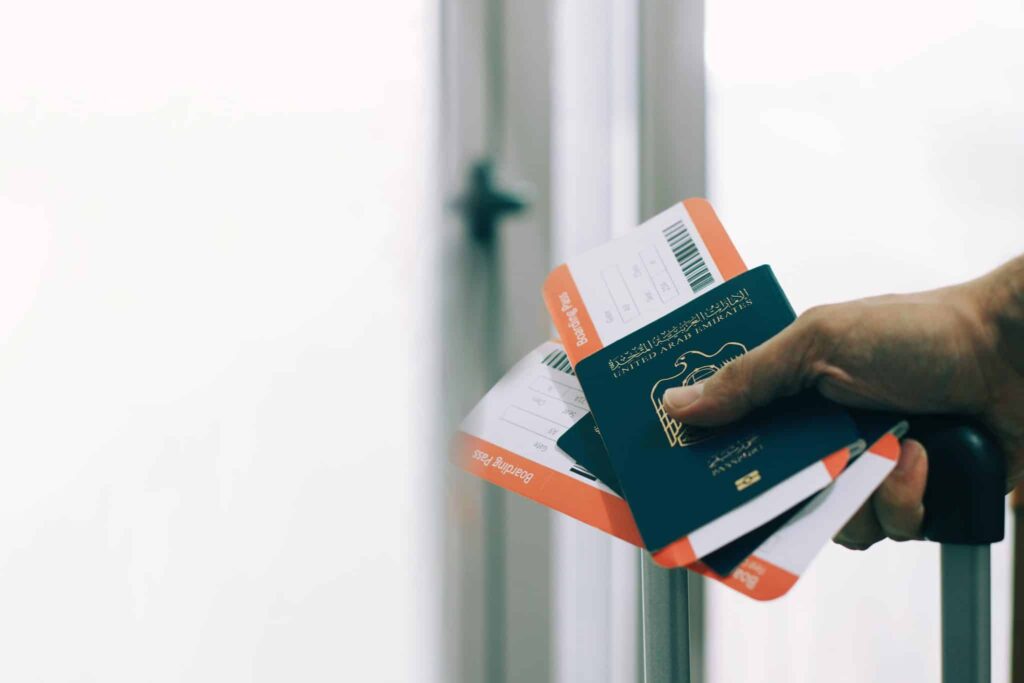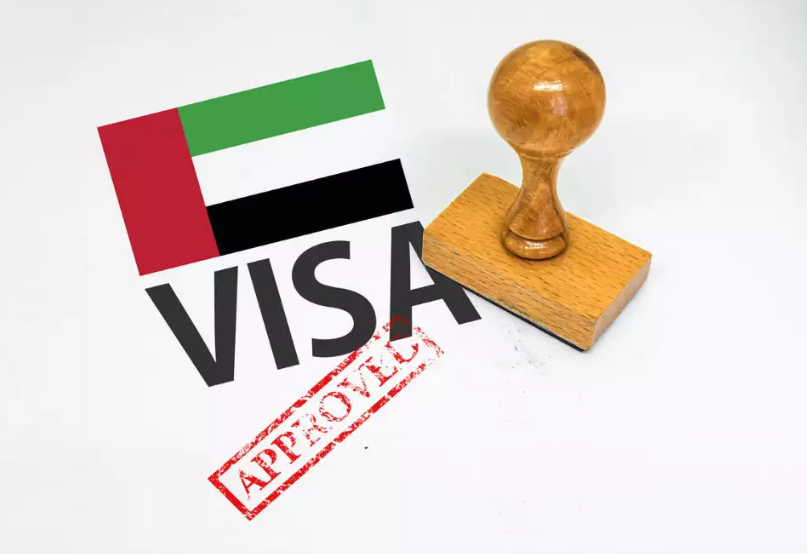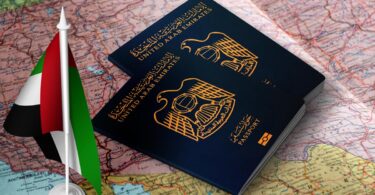The uae free visa.info website serves as a valuable resource, offering information on the UAE’s initiative to provide tourists with the opportunity to apply for a visa free of charge. This initiative is a significant aspect of the government’s broader efforts to establish the UAE as a premier tourist destination. In this article, we will explore the UAE visa process for GCC residents, UAE visa on arrival, and the details surrounding UAE Residence visa for family members.
Table of Contents
uae free visa.info
uae free visa info is a valuable resource for information on Passport Visa Free Countries and the process for obtaining a free visa. This platform is crucial for travelers seeking clarity on visa requirements and procedures, contributing to a smoother travel experience.
uae free visa info for GCC Nationals
Citizens of Gulf Cooperation Council (GCC) countries, including Bahrain, Oman, Kuwait, Qatar, and Saudi Arabia, do not require a visa to visit the UAE. GCC residents who are not citizens but hold high-level positions such as doctors, managers, engineers, or public sector employees, along with their families, can obtain a non-renewable 30-day visa upon arrival at all UAE airports.
UAE visa on arrival
For visitors to the UAE, there are specific guidelines for obtaining a visa on arrival. Here’s a summary:
- Stay up to 180 days
Mexican nationals are eligible for a free UAE visa on arrival and can stay for up to 180 days.
- Stay up to 90 days
Nationals from the following countries can obtain a free UAE visa on arrival and stay for up to 90 days:
European Union countries (excluding Ireland), Argentina, Bahamas, Barbados, Belarus, Brazil, Chile, Colombia, Costa Rica, El Salvador, Honduras, Iceland, Israel, Kiribati, Liechtenstein, Maldives, Montenegro, Nauru, Norway, Paraguay, Peru, Russia, Saint Vincent and the Grenadines, San Marino, South Korea, Serbia, Seychelles, Solomon Islands, Switzerland, Uruguay.
- Stay up to 30 days
Nationals from the following countries can obtain a free UAE visa on arrival and stay for up to 30 days: Andorra, Australia, Brunei, Canada, China, Hong Kong, Ireland, Japan, Kazakhstan, Macao, Malaysia, Mauritius, Monaco, New Zealand, Singapore, Ukraine, United Kingdom, United States, Vatican City.
read more: uae free visa info: type, process and requirements
Other visas uae
Substitute Visas:
- Nationals of India holding a valid visa or residents of the United States or residents of the European Union can obtain a free 14-day visa on arrival.
Golden Visa:
- The Golden Visa is issued for investors, entrepreneurs, and professional talent.
Transit Visa:
- Passengers on all international airlines can enter the UAE for up to 96 hours with a transit visa obtained at the airport. Hotel booking is required. This does not apply to nationals from Afghanistan, Iraq, Niger, Syria, Somalia, and Yemen. Transit travelers are exempt from entry fees for the first 48 hours, extendable up to 96 hours for an additional fee of 50 AED.
Tourist Visa:
- The Tourist visa is a special category under the Visit visa, allowing the holder a 30-day stay.
Multiple-Entry Visa:
- Multiple-entry visas are issued to cruise ship passengers and business visitors who frequently visit the UAE due to their ties with a multinational or reputable local company. Valid for six months from the issue date, each stay is 30 days. The visa is non-renewable, and individuals must enter the UAE on a Visit Visa before obtaining a Multiple-entry Visa.
Airline Visa:
- Visitors usually require a sponsor, but visas can be arranged online through certain airlines such as Air Arabia, Air Astana, Emirates, Etihad, flydubai, Turkish Airlines, and others.
uae visa document required
The following documents are required for the visa application process:
- Clear Passport Copy of the Sponsor:
- A legible copy of the sponsor’s passport.
- Clear Passport Copy of the Sponsored Person:
- A clear copy of the passport belonging to the person being sponsored.
- Salary Certificate or Employment Contract of the Sponsor (resident):
- A copy of the sponsor’s salary certificate or employment contract.
- Proof of Family Relationship (Kinship):
- Documentation substantiating the family relationship between the sponsor and the person being sponsored.
- Travel Insurance:
- Proof of travel insurance for the person being sponsored.
- Copy of Confirmed Flight Booking:
- A copy of the confirmed flight booking for the person traveling.
- Bank Approval Letter:
- An approval letter from the bank.
- Passport-sized Colour Photographs:
- Recent passport-sized color photographs of the person being sponsored.
- Visa Fee:
- Payment of the applicable visa fee.
- Visa Application Form, Duly Filled:
- A completed visa application form.
How to apply UAE Residence Visa
Obtaining a residency visa in the United Arab Emirates (UAE) involves several key steps:
- Finding a Sponsor:
- A sponsor, often your employer, is necessary for the residency visa.
- Family members, such as spouses or parents, can also be sponsors under certain conditions.
- Medical Examination:
- After securing a sponsor, you must undergo a medical examination within the UAE.
- The examination ensures good health and the absence of communicable diseases.
- Applying for a Visa:
- Your sponsor, typically your employer, initiates the visa application on your behalf.
- The process includes submitting necessary documents (e.g., passport, passport-sized photo) to the UAE embassy or consulate in your home country.
- Entry into the UAE:
- Once the residency visa is approved, you can enter the UAE.
- Finale the process by obtaining a residence permit from the General Directorate of Residency and Foreigners Affairs (GDRFA).
- This step may also involve providing fingerprints and having your photograph taken.
UAE Residence visa for family members
If you’re an expatriate resident in the UAE, sponsoring your family involves meeting specific criteria:
- Sponsoring Wife and Children:
- An expatriate resident can sponsor the residence visa for his wife and children by fulfilling the mentioned sponsorship requirements.
- Sponsoring Two Wives:
- In specific cases, a Muslim resident may be permitted to sponsor two wives, subject to terms and conditions set by ICP (presumably Islamic authorities).
- Sponsoring Daughters:
- Expatriate residents can sponsor unmarried daughters without age restrictions.
- Sponsoring Sons:
- A male or female resident can sponsor sons until they reach the age of 25.
- Sons with special needs can be sponsored without age restrictions.
- Sponsoring Newborns:
- For babies born in the UAE, a residence visa must be applied for within 120 days of birth to avoid fines.
- Sponsoring Stepchildren:
- Expatriate residents can sponsor stepchildren, following GDRFA’s conditions, including a deposit for each child and a written no-objection certificate from the biological parent.
- Residence visas for stepchildren are valid for one year and can be renewed annually.
documents required to sponsor wife and children
here’s a list of the required documents to sponsor a wife and children:
- Application form, available either online or through a registered typing office.
- Passport copies of the wife and children.
- Photos of the wife and children.
- Medical clearance certificate for the wife and children above 18 years.
- Copy of the husband’s employment contract or company contract.
- Salary certificate from the employer, stating the husband’s monthly salary.
- Attested marriage certificate.
- Registered tenancy contract.

In conclusion, the uae free visa.info website serves as a valuable resource, offering detailed information about the free visa process in the UAE.
Who can enter UAE without visa?
All nationals of Bahrain, Kuwait, Oman, and Saudi Arabia are currently permitted freedom of movement in the UAE
Can I get Dubai visa without sponsor?
Yes there is a tourist visa for Dubai without a sponsor.
Can I Bring My Family with Me on a Free Visa?
Yes, you can all you need is to apply for a separate visa for each family member.






Leave a Comment